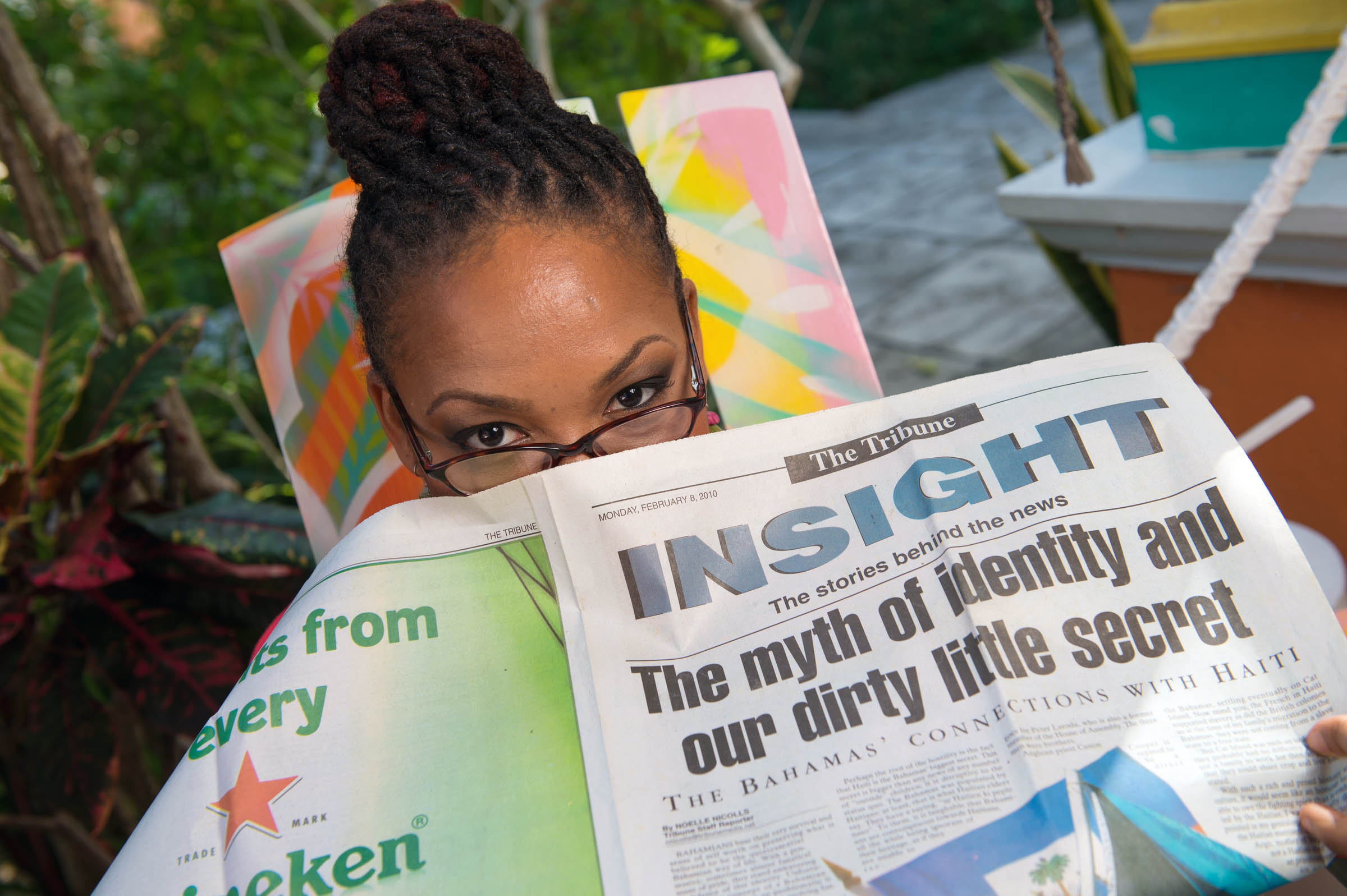Bahamian freelance journalist Noelle Nicolls accepted an invitation to speak at a regional seminar on communication rights for migrants in the Caribbean hosted by the World Association for Christian Communication (WACC) in Puerto Rico this weekend.
From January 8-10, 2015, journalists, scholars, activists will participate in the regional seminar and assembly under the theme: “Strengthening Communication Rights of Migrants in Host Countries in the Caribbean – Strategies for Integration and Survival”.
Taking note of her previous investigative work and body of personal commentary on immigration issues in the Bahamas, WACC President Embert Charles formally invited Noelle to present issues concerning immigrant rights in the Bahamas.
“I am connected to a network of human rights activists and women’s rights activists in the region who know my work, so I was recommended to the WACC-Caribe committee,” said Ms Nicolls, whose contribution speaks to the reality of life for migrant workers of African descent and immigrants from the Caribbean, with a particular emphasis on those with Haitian ancestry.
“If we are going to speak about immigrant rights in the Bahamas I think we have to speak about the Haitian experience. And any conversation about strengthening communication rights for this group of migrants must begin with honest communication. There is just too much scapegoating and rhetorical dishonesty, and that is keeping us from effectively speaking to the problem much less tackling it,” said Ms Nicolls.
“So my contribution speaks to the deep-seated cultural attitudes among Bahamians that deny migrants not only communication rights but also the right to basic human dignities. I think this area needs to be researched seriously by cultural scholars. From my work in the field as a journalist, I have seen how these cultural attitudes hinder any attempt to engender and protect immigrant rights.” she said.
The title of my presentation is: “The So-Called Haitian Problem: Our Big Lie and the Cultural Attitudes that Sustain it”.
“The society is so exacerbated by what it calls the Haitian Problem there is simply no appetite for even speaking about fostering immigrant rights. It is a very sad situation, because what we really have in the Bahamas is an identity problem; it has festered for so long it has become a cultural neurosis,” said Ms Nicolls.
“What we call the Haitian Problem, is in fact a Bahamian problem of having little regard or respect for immigrant rights. So in the spirit of honest communication I will attempt to unpack the Bahamian problem, and speak to the healing that needs to take place to transform our cultural attitudes. This will make way for a true effort to foster and expand immigrant rights in the Bahamas, and to build society that upholds principles of equity, peace, and justice with respect to all communities,” she said.
WACC is registered in Canada as a not-for-profit corporation and an incorporated charitable organization. The objectives of the seminar are to:
- Share information on the status of language and citizens rights migrant groups in the Caribbean region.
- Discuss programmes and projects, including those addressing gender-based violation of migrants, to be implemented at the regional levels through institutions such as the UWI (CARIMAC) and the CARICOM, Caribbean Broadcasting Union.
- Provide skills and competencies to regional media practitioners including WACC Caribe members on best practices in the reporting/coverage of migration issues, including attention to awareness of issues related to gender and the differently-abled.
- To discuss approaches to the measurement of communications rights n the Caribbean multi-language context
- To develop guidelines for the treatment of information about migrant communities.
- To produce a digital interactive report on the issues related to migration and communications rights in the Caribbean region.
Share this Post
